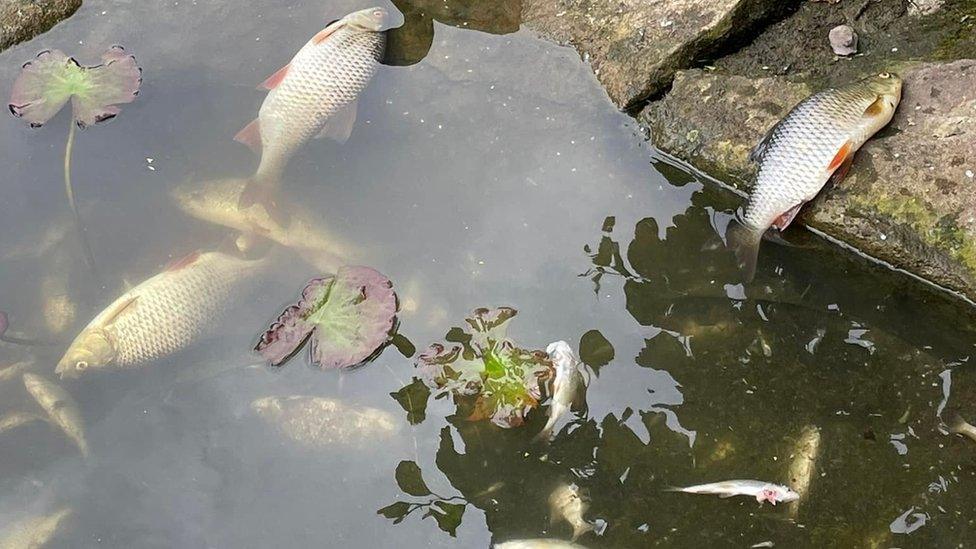Drought: Fish at risk in Nottingham and Derbyshire
- Published
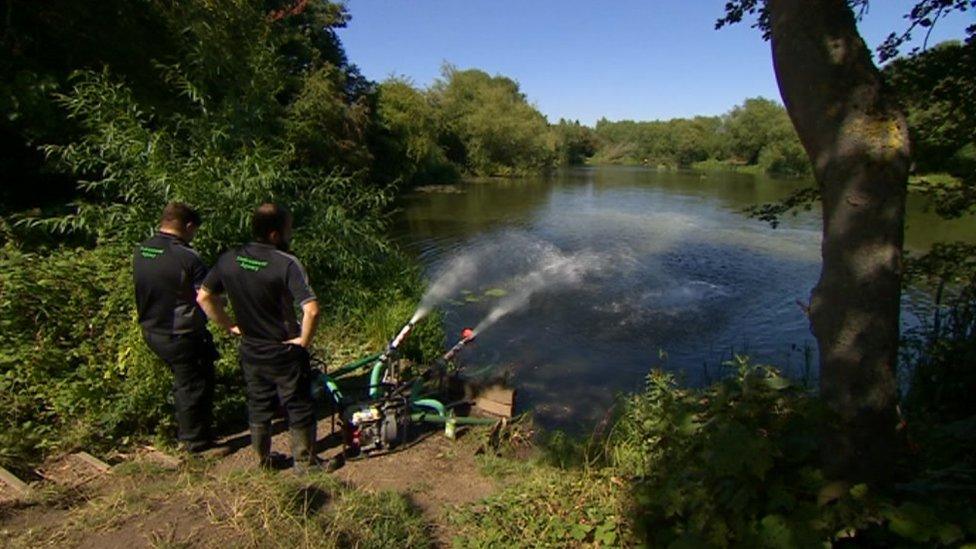
Iremongers Pond has been aerated 14 times in the past two months
Fish in ponds and rivers are thought to be at risk as a result of the hot weather and lack of rainfall.
The Environment Agency said it was having to regularly pump oxygen into Iremongers Pond in Nottingham to keep the fish alive.
Paul Reeves, from the agency, said that in Matlock, Derbyshire, the temperature of the River Derwent had increased for six consecutive days.
He said the warm water, low flow and possible pollution were concerning.
The Environment Agency said it had aerated the water at Iremongers Pond 14 times in the past two months.
Most summers this process is not necessary but this year it is helping to keep the fish alive.
Mr Reeve said game fish like trout needed high levels of oxygen to survive.
At the River Derwent, where water temperatures are rising, dissolved oxygen concentrations have fallen by 10% in less than a week.
In June, dozens of dead fish were found in Belper River Gardens in Derbyshire.
It was believed they died as a result of low oxygen levels.
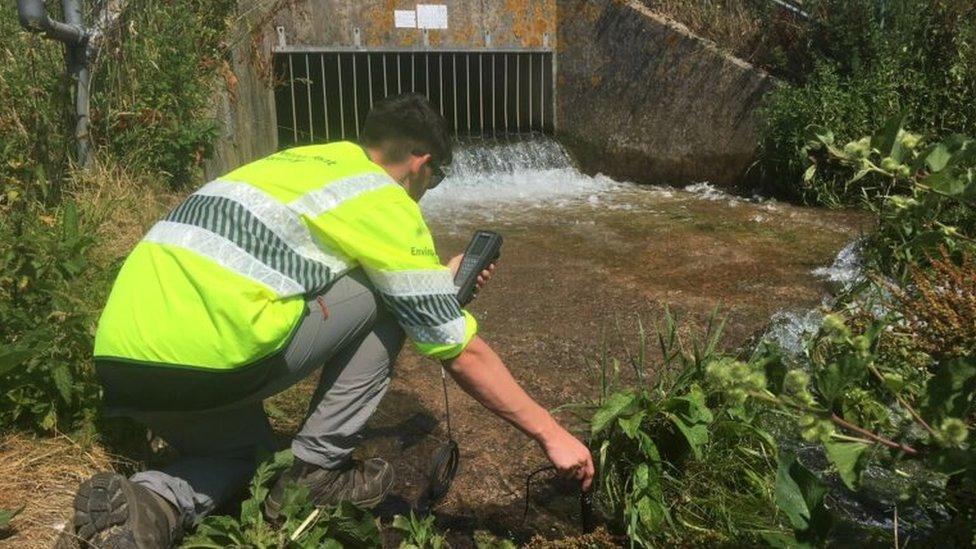
The temperature of the River Derwent at Matlock has increased for six consecutive days
The amount of water in upland rivers and streams is also a concern for the Environment Agency.
Mr Reeves said all of those in Derbyshire were now at "extremely low levels".
He recorded the River Wye at Buxton as having a depth of just 1cm.
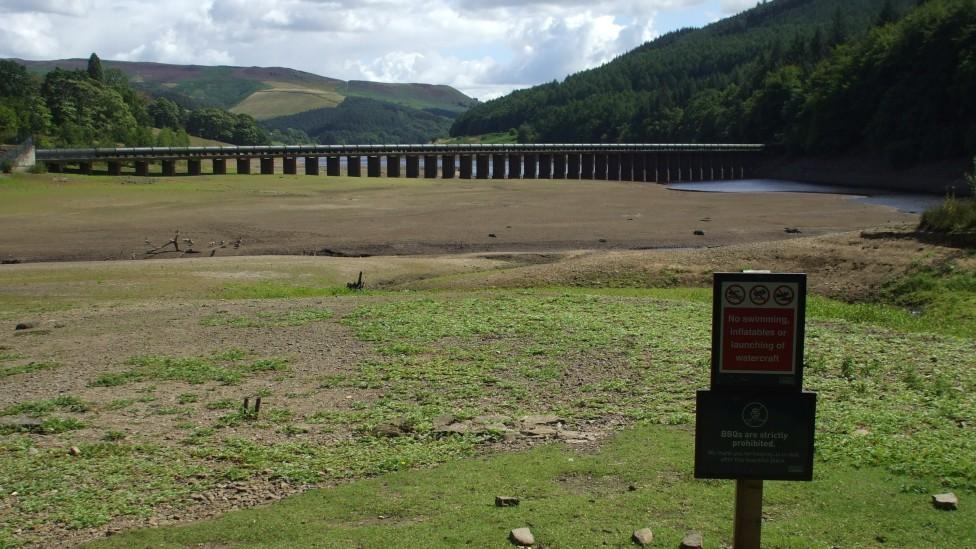
The capacity of Ladybower Reservoir was recorded as 54.5% on 8 August
A drought was officially declared in the East Midlands on Friday following prolonged dry weather and record-breaking high temperatures.
Severn Trent last updated it reservoir water levels on 8 August, when it said they were at 58.8% of capacity.
Many individual reservoirs were much lower, like Howden in the Peak District, at 14.6%.
The water provider said: "The current heatwave, combined with a very dry spring, means that reservoir levels are lower than we would like them to be at this time of year."
Unlike in other areas of the UK, there is not currently a hosepipe ban in the East Midlands.
Severn Trent said: "Customers haven't seen a hosepipe ban since 1995.
"While we can't control the weather, we're doing all we can to keep up with demand this summer, whilst protecting the environment we take water from."

Follow BBC East Midlands on Facebook, external, Twitter, external, or Instagram, external. Send your story ideas to eastmidsnews@bbc.co.uk, external.
- Published12 August 2022
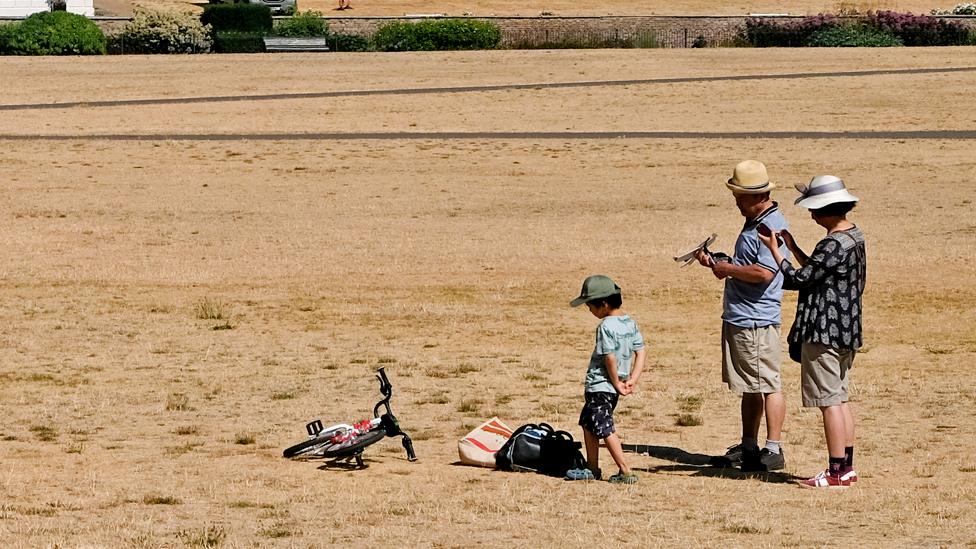
- Published12 August 2022
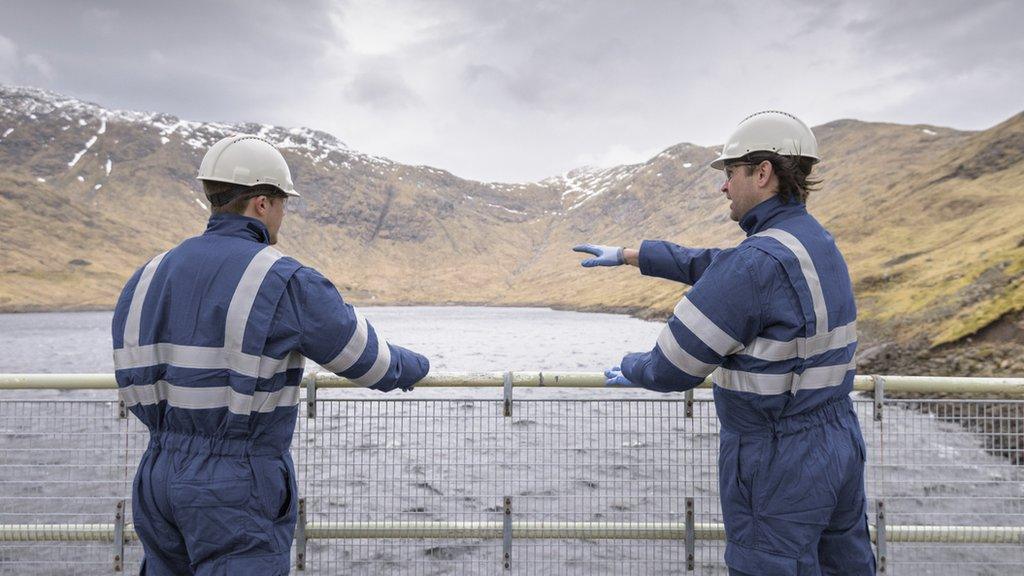
- Published20 July 2022
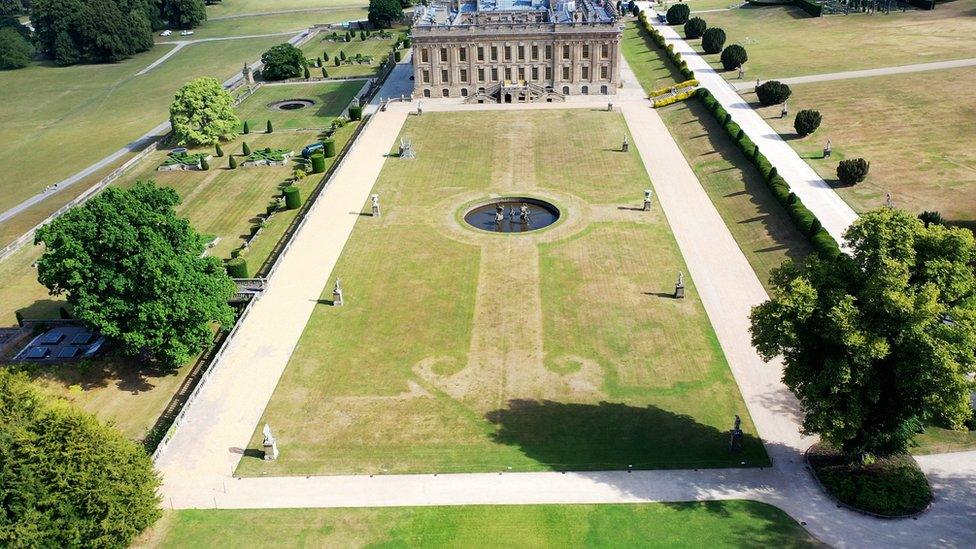
- Published20 June 2022
